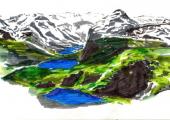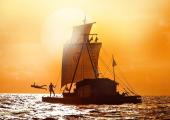theartsdesk in Oslo: From heritage to art now

A dynamic art scene in Norway's capital is giving London and Berlin a run for their money
Things you might know about Oslo: it’s expensive and the cost of a beer, wine, dinner for two – whatever your tourist yardstick – might make your hair stand on end (the cost of living is currently second only to Singapore city, according to a 2014 survey by the Economist Intelligence Unit); it’s small (population: 600,000), yet it’s also the fastest growing capital in Europe, thanks to both overseas immigration and the fact that many Norwegians are now moving to the capital; its most celebrated son is, of course, Edvard Munch.









